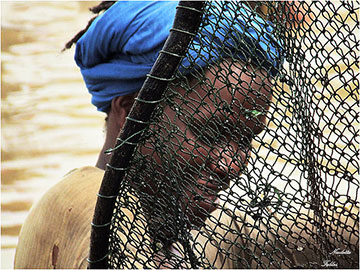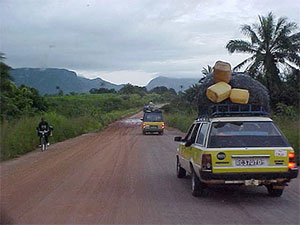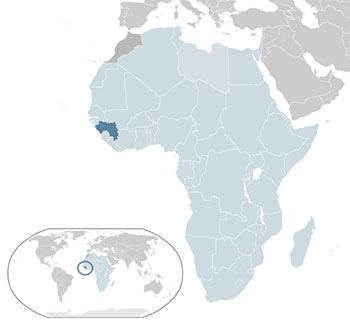African success stories may start with Botswana and end – a long time later – with Guinea. So once you establish where it is (on the continent’s northwest coast), get over its past and look to the future, there may be a reason to spend more time on the conversation.
Like many countries in Africa, Guinea has massive natural potential, including some of the largest bauxite and iron deposits in the world and the ability to generate over 6,000 MW of hydroelectric energy. But it has undergone decades of autocratic rule with high levels of corruption, violence and human-rights violations. This has had serious implications for business.
“All indicators were red, and Guinea was ranked badly in almost all international reports,” says Dr Kerfalla Tansane, Guinean senior minister of finance and economy. It was considered a top-10 most-corrupt nation by Transparency International and was consistently ranked in the bottom five by the International Monetary Fund (IMF) and World Bank for doing business, he adds. But the country’s first democratically elected president, Alpha Conde, is attempting to create an environment for foreign investment.
Time for Transformation
“We’ve had a decade of slowdown due to instability and mismanagement by government,” says Dr Tansane. “It is now time to address the legacy of bad government.”
Since the 2010 election of Conde, things do seem to have turned a corner. For example, all public-sector contracts were frozen and audited. “Pricing was confused, and everything had a high price for the people of Guinea,” adds Dr Tansane. “Instead of spending money on hospitals, schools and roads, a few people enjoyed the benefits of these contracts.”
However, accusations of electoral misconduct and opposition protests still mar the country’s prospects for long-term stability. It is also still beset by numerous problems including a lack of infrastructure as well as many of the problems associated with poverty, such as low literacy rates and life expectancy and high levels of disease.
In order to help the start an economy which can address many of the problems of poverty, more work needs to be done, both politically and economically, according to the Guinean government and NGOs (non-governmental organisations). The country is focusing on electricity generation, mining and transportation infrastructure as priority sectors and is implementing new policies to enable foreign investment.
“The story of Guinea is very simple. It has great potential, but it is still very poor. So how do you go about transforming it?” asks Dr Tansane.
One part of the answer is that the Guinean government wants to turn to the private sector to help it with this transformation. “It should become the engine of growth for Guinea,” Dr Tansane adds.
Steps for Stability
In order for it to do so, Guinea will have to prove to foreign firms that it is now a safe place to invest and one with long-term potential for returns.
Stability is extremely important in doing this, says Dr Tansane. That is why one of the first decisions taken by the government was to resume relations with the World Bank and IMF, he adds.
This has led to further reforms proposed by the World Bank and IMF that are taking place over a four-year period stretching from 2012 to 2016. For example, the treasury will no longer be allowed to borrow from the central bank, the government is to only spend revenue earned by the treasury, and all public accounts are to be placed under the control of the treasury.

Guinea is also working to make it easier for foreign firms to do business in the country. This includes the creation of the Agency for Private Investment Promotion (APIP) – formed in 2011 – and ongoing attempts to address issues in the “Doing Business” reports of the World Bank Group through administrative reforms.
The APIP, along with an ongoing review of sector investment codes, is meant to reduce transaction costs in terms of money, time and harassment as well as reduce the time it takes to create a company, pay taxes or get authorisation for construction, says Dr Tansane. This should help to jumpstart growth in some of the country’s key sectors, he adds. For example, reform of the mining sector was one of President Conde’s main electoral promises.
Key Iron Deposit Awaits Investors
The Guinean mining sector is the driving force behind the economy. The country does not have the petroleum or precious mineral wealth of some of its African counterparts. It does have some gold and diamond deposits, but its main source of mineral potential lies in bauxite – the ore that is used to make aluminium – and iron.
“Guinea is estimated to hold two-thirds of the world’s bauxite deposits. It also holds some of the largest and highest-quality iron ore deposits on the planet,” says Mohamed Lamine Fofana, Guinean minister of mining. “The sector accounts for 20 percent of Guinea’s GDP [gross domestic product], represents 30 percent of export revenues and provides 80 percent of its foreign currency inflow.”
However, due to regime change and corruption, exploration rights for the vast majority of Guinean territory had already been sold through around 1,500 licences, adds Fofana. Government reforms included retiring around 820 licences following a review into the bidding processes used. Not all stakeholders have been happy with the results, but the review has already helped to clear the way for further developments.
“Now the place is free for those who want to come and participate in its development adventure,” says Fofana. “We are now asking for companies that have the financial and technical capacity to help to participate [by contacting the Guinean Department for Grand Projects].”
One of the biggest developments will be the eventual mining of the Simandou iron deposit. The Simandou deposit is thought to be one of the largest unexploited sources of iron in the world and to also be of exceedingly high quality. However, it is inaccessibly located, and the ownership of some of the mining rights are still under review.
Development of Simandou will form the impetus for an integrated business corridor that is set to include a railroad to transport ore to the coast, the creation of a deepwater port and the development of supported economic activity in areas such as aquaculture, agriculture and telecommunications.
This integration is essential to the wider Guinean economy, says Dr Tansane. “For over 40 years of mining in Guinea, there is little impact on the social lives of Guineans,” he adds. “The time has come to build strong synergy – a growth corridor – between mining and other sectors. These projects will not be managed in isolation.”
“We are now looking for the best approach to developing those infrastructure projects,” says Fofana. Guinea is investigating financing from the World Bank coupled with mining firms willing to jointly fund the rail, road and sea projects required to get minerals out of Guinea.
Electricity Generation Is Job One
But although projects such as the Simandou integrated business corridor will go some way towards helping to address Guinea’s lack of transportation infrastructure, the country will still need to prioritise electricity generation if it is to build a transformative economy. “So far every company has to have its own generator. This is expensive and unreliable,” says Dr Tansane.
But fortunately for Guinea, it has the natural resources to overcome its lack of generating capacity. “The country is the water-tower for West Africa,” adds Dr Tansane. “All major regional rivers have their sources in Guinea, and that means there is a huge potential for hydro-electricity – estimated at over 6,000 MW.”
If the potential was tapped, it could provide enough energy to power not only Guinea, but the whole sub-region. There are already some initial projects underway, with about a dozen sites being investigated for potential and a programme of interconnection of grids taking place between Guinea and its neighbours. The country is looking for foreign firms to come in and further this development.
“Energy is the most interesting of the investment opportunities in Guinea in my opinion,” says Chris Wilder, an emerging markets fund manager formerly with Stone Harbor Investment Partners. “It could become one of the lowest-cost producers of energy in the world and become a net exporter quite easily.”

There is also the government support and appetite necessary to make this happen. “Outside of food, electricity is on the forefront of most politicians’ minds. If the lights start going out, it’s unlikely that you’re going to get re-elected,” adds Wilder.
The Guinean leadership recognises the importance of electricity to mining and the wider economy. Not only does mining require significant amounts of energy, but the creation of reliable power sources could also enable the country to start processing.
“If there was electricity, Guinea could do more processing of bauxite into alumina or even produce aluminium itself,” says Dr Tansane. “Currently we export bauxite to Cameroon where it is processed into aluminium, some of which is imported back into Guinea. This should not be necessary.”
As the country continues to work itself into the world of democracy and stability, investment opportunities will continue to emerge. Already the country has more than a score of projects waiting for foreign involvement. If it can avoid political uncertainty, that list will continue to grow.
Rob Denman is editor in chief and CEO of London-based Pathfinder Business (www.pathfinderbuzz.com) and a regular contributor to Site Selection International and Site Selection magazine.
